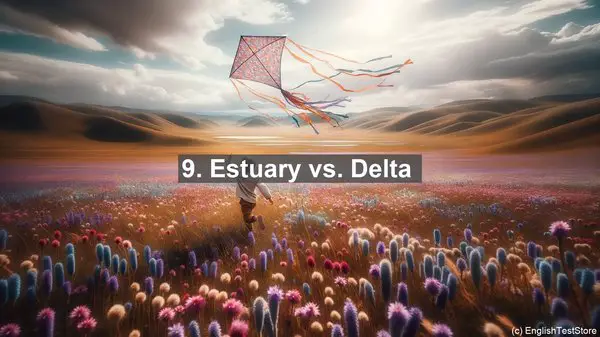Introduction
Welcome to today’s lesson on Integrated Coastal Zone Management. In this lesson, we’ll be discussing the top 10 commonly confused words in this field. Let’s dive in!
1. Erosion vs. Deposition
Erosion and deposition are two processes that shape coastal areas. Erosion refers to the removal of sediment, while deposition is the accumulation of sediment. Understanding the difference is crucial when planning coastal protection measures.

2. Adaptation vs. Mitigation
Adaptation and mitigation are strategies used to address climate change impacts. Adaptation focuses on adjusting to the changes, while mitigation aims to reduce the causes. Both are essential in managing coastal zones.
3. Habitat vs. Niche
Habitat refers to the physical environment where a species lives, while niche encompasses its role and interactions within that habitat. Protecting habitats and understanding species’ niches are vital for biodiversity conservation.
4. Zoning vs. Buffering
Zoning involves dividing coastal areas into different zones for specific uses, such as residential or commercial. Buffering, on the other hand, creates a transitional area between zones to minimize conflicts and provide ecological benefits.
5. Stakeholder vs. Shareholder
Stakeholders are individuals or groups with an interest or concern in a project or issue. Shareholders, on the other hand, are individuals who own shares in a company. In coastal management, engaging stakeholders is crucial for inclusive decision-making.
6. Biodiversity vs. Species Richness
Biodiversity refers to the variety of life in an area, including genes, species, and ecosystems. Species richness, on the other hand, focuses solely on the number of different species. Biodiversity is a broader concept encompassing various levels of ecological complexity.
7. Eutrophication vs. Hypoxia
Eutrophication is the excessive enrichment of water bodies with nutrients, often leading to algal blooms. Hypoxia, on the other hand, is the depletion of oxygen in water, often caused by eutrophication. Both can have severe ecological consequences.
8. Resilience vs. Resistance
Resilience is the ability of a system to recover from disturbances, while resistance refers to its ability to withstand those disturbances. In coastal ecosystems, both are crucial for their long-term health and sustainability.
9. Estuary vs. Delta
Estuaries and deltas are both coastal features formed by the interaction of rivers and the sea. However, estuaries are partially enclosed and have a more limited connection to the open ocean, while deltas are typically more extensive and open.
10. Littoral vs. Pelagic
The littoral zone refers to the coastal area near the shore, where sunlight penetrates and supports abundant life. The pelagic zone, on the other hand, refers to the open ocean, where sunlight is limited, and life is adapted to different conditions.

